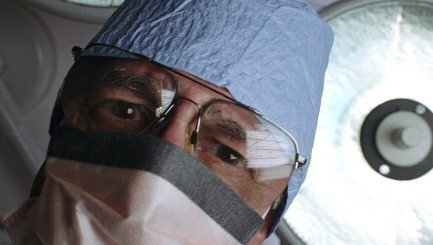Could Gastric Band Surgery Improve Your Diabetes Control?
 According to a study from the University of California, obese patients with type 2 diabetes can see significant wellness improvements in their glucose control if they undergo laparoscopic adjustable gastric banding.
According to a study from the University of California, obese patients with type 2 diabetes can see significant wellness improvements in their glucose control if they undergo laparoscopic adjustable gastric banding.
According to Ted Okerson, MD, who led the study, 2 years after surgery 95% of patients achieved remission or improvement in their haemoglobin A1C values. Those in the remission group dropped their BMI by 22.8% on average, and there was an 18% drop for those in the improvement and no-change groups. 56% of the remission group lost all excess weight, and achieved a BMI of 25. 43% of the improved group also managed this, and Okerson reported this correlated to some degree with change in type 2 diabetes status.
In terms of other wellness factors, diabetes lasted on average for 4 years for those who were in the remission group, which was a significant difference compared to the 6.7 year average diabetes duration for the group that made no improvement. 3 patients who made no change had an average duration of the disease of 9 years. Those who experienced remission or improvement also saw a 91% improvement hypertension, 77% in hyperlipidemia, 91% and 92% in gastric reflux and osteoarthritis, and 86% in sleep apnoea, which Okerson claims is the more important improvement ‘given that it is another cardiovascular risk factor.’
‘We know that if we intervene early when there are still functional beta cells there is more likely a chance for remission’ Okerson reported at the American Association of Clinical Endocrinologists (AACE) meeting. Remission was defined as an elimination of hypoglycaemic medication and ‘improvement’ meant a reduction in hypoglycaemic medication in this study.
Okerson explained ‘It’s important that we all know that diet and weight-loss lifestyle changes are foundational to the treatment of type 2 diabetes. But we also know that these recommendations are difficult for patients to achieve’, and lifestyle changes, if achieved, are also difficult to sustain for most patients. Therefore, though weight loss or bariatric surgery seems like a drastic measure, it is becoming an ‘increasingly recognised potential treatment approach to help patients achieve meaningful weight loss that is significant but also sustainable,’ Okerson argued.


Comments are closed.